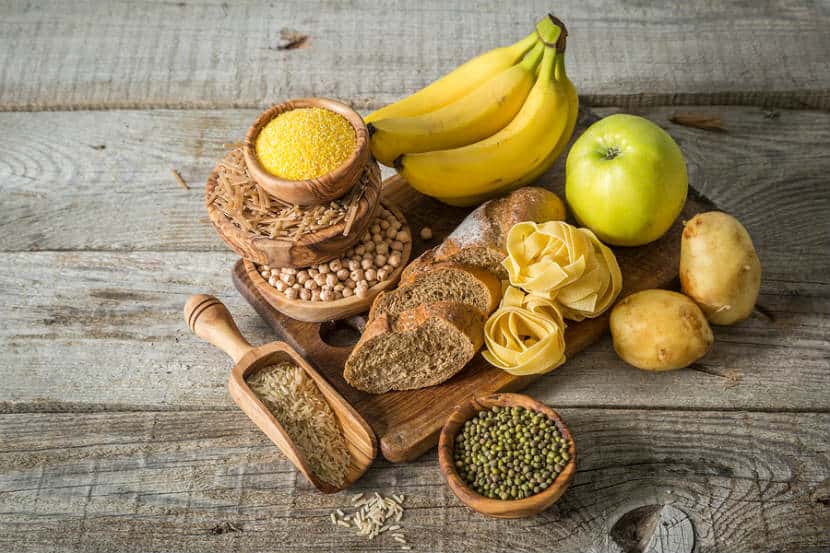Carbohydrates Were Always Human’s Favorite, Since Ancient Times
Nikki Attkisson | Last Updated : May 14, 2021According to a recent report on the evolution of the human oral microbiota, Neanderthals and ancient humans evolved to consuming starchy diets 100,000 years ago, much earlier than previously believed.
Carbohydrates Were Always Human’s Favorite, Since Ancient Times
According to the findings, such foods were significant in the human diet long before farming and well before modern humans evolved. And, although these early humans were certainly unaware of it, the effects of incorporating carbohydrates into their diet undoubtedly aided in the expansion of the human brain due to the glucose in starch, which is the brain’s primary fuel supply.

According to Harvard University researcher Christina Warinner, they believe they’re finding signs of a very ancient activity that may have been part of encephalization or human brain development. It’s proof of a fresh food supply that early humans discovered in the form of roots, starchy vegetables, and seeds.
The oral microbiota is a microorganism culture found in the mouth. They aid in disease prevention and promotion of wellbeing.
These observations are the result of a seven-year study on which more than 50 foreign scientists collaborated.
In what is thought to be the earliest oral microbiome ever sequenced, they reconstructed the oral microbiomes of Neanderthals, monkeys, and humans, including a 100,000-year-old Neanderthal.
Scientists examined fossilized dental markers from early humans and Neanderthals, then compared them to chimps and gorillas, man’s nearest primate ancestors, and howler monkeys, a more distant ancestor.
They used recently evolved techniques and methods to recreate their genomes by genetically analyzing billions of DNA fragments found in the fossilized plaque. In principle, it’s equivalent to archaeologists carefully piecing together ancient broken vessels, except on a much larger scale.
The discovery of strains of oral bacteria that are specifically designed to break down starch shocked the researchers. This Streptococcus bacterium has an unusual capacity to absorb and prey on starch-digesting enzymes found in human saliva. The genetic machinery they use to do this is only enabled when starch is consumed on a daily basis.
These starch-adapted strains were present in the dental plaques of Neanderthals and ancient humans but not in the majority of primates. As spoken in a Harvard press release by Warinner, the tendency of this Streptococcus to do this seems to be a very human-specific genetic characteristic.
According to the researchers, the discovery makes sense because starch-rich crops like underground roots, tubers like potatoes, and seeds and nuts were essential and stable protein sources for hunter-gatherer cultures all over the world.
According to Warinner, the human brain necessitates glucose as a food supply, and meat alone is insufficient. Starch accounts for about 60% of all calories consumed by humans globally.
According to study co-author and professor of biological anthropology Richard Wrangham, its availability is even more predictable through the annual season for tropical hunter-gatherers. These new findings make perfect sense, confirming the newer view of Neanderthals as having more Sapien-like diets that were starch-rich and cooked than previously believed.
The study also identified ten classes of bacteria that have been present in the human and primate oral microbiota for more than 40 million years and are still present today. They are relatively unknown.
According to the report, the oral microbiomes of Neanderthals and modern humans are almost indistinguishable, which focused on Neanderthals and modern humans. They could only see variations as they looked at individual bacterial strains. For example, before 14,000 years ago, ancient humans in Europe exchanged bacterial strains with Neanderthals that are no longer present in modern humans. The research touches on the significance of analyzing the small bacteria that exist in the human body.
It demonstrates that our microbiome encodes useful knowledge about evolution, including a glimpse at stuff that would otherwise leave no traces, according to Warinner.
With over 15 years as a practicing journalist, Nikki Attkisson found herself at Powdersville Post now after working at several other publications. She is an award-winning journalist with an entrepreneurial spirit and worked as a journalist covering technology, innovation, environmental issues, politics, health etc. Nikki Attkisson has also worked on product development, content strategy, and editorial management for numerous media companies. She began her career at local news stations and worked as a reporter in national newspapers.
